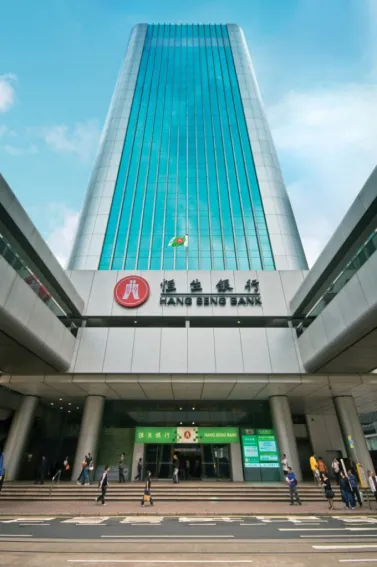
Can Hong Kong banks meet IFRS 9 requirements on time?
Profitability may be hit amidst higher provisioning prerequisites.
Hong Kong banks are well-positioned to meet International Financial Reporting Standards 9 (IFRS 9) requirements, according to credit rating agency S&P, as banks like HSBC have already adopted revised standards on the presentation of gains and losses early last year.
Also read: Hong Kong banks can hold firm against another housing crash
The HKFRS 9, the local equivalent of IFRS 9, raises provisioning through the introduction of an “expected credit loss” impairment model as opposed to the previous IAS 39 “incurred loss’ impairment model. Under the new reporting standard, banks are required to recognize a credit loss allowance that represents 12 months of ECL for all performing loans and for significantly underperforming and nonperforming loans, an allowance based on an estimate of lifetime ECL.
“HKFRS 9 will likely lead to early recognition of credit losses and higher provisioning, which could lead to a slight decline in profitability. However, we expect the banks' tightened underwriting standards and signs of stabilization in asset quality since late 2016 to act as mitigating factors,” S&P forecasted.
Banks' business models including risk appetite and loan portfolio mix are not poised to undergo significant change due to the adoption of the new reporting standard. However, it may have some long-term effects.
“That said, in the long run, the adoption of IFRS 9 may prompt banks to try to mitigate the impact of the accounting rule change by adjusting the duration period for potentially high-risk loans (lifetime expected credit losses need to be provisioned for the duration of the loan) or increasing the pricing of such loans,” the credit rating agency noted. “Banks may also refrain from lending, particularly in a Hong Kong context, toward property related loans and potentially toward mainland exposures given asset quality problems in China.”
In terms of capitalisation, the potential impact is poised to be largely manageable as the Hong Kong Monetary Authority requires banks to maintain a regulatory reserve in addition to collective impairment allowances under the previous standard to cover unidentified, expected future losses.
The HKMA had asked authorised institutions to review and in many cases increase their regulatory reserve levels. Following the introduction of the Basel 3 countercyclical capital buffers in 2016, the HKMA agreed with authorised institutions to gradually release (over four years) the part of the "increased regulatory reserve" focused on risks associated with excessive credit growth.
Here's more from S&P:
We foresee that the impact on S&P Global Ratings' RAC ratio will also be manageable within the current rating construction of the Hong Kong banks, noting that their forecasted RAC ratios are comfortably within respective boundaries for our current capital and earnings assessments. We do not foresee any potential ratings changes stemming from the adoption of IFRS 9 as the potential impact on the banks' financial and business profiles are not significant.
On the liability side, HKFRS 9 essentially does not change the approach to classification and measurement for financial liabilities—the vast majority of financial liabilities will continue to be measured at amortized cost. The key change that is significant to accounting for financial liabilities relates to an entity's own debt measured at fair value. The standards would now require recognition of the portion of fair value changes caused by an entity's own creditworthiness, but we would continue to adjust this for our calculation of total adjusted capital.






![Lorem Ipsum [ABF 1]](https://cmg-qa.s3.ap-southeast-1.amazonaws.com/s3fs-public/styles/exclusive_featured_article/public/2025-03/a_hand_pointing_to_a_futuristic_technology_5b87c9d0e3_1.png.webp?itok=2w0y1WhS)


![Cross Domain [Manu + SBR + ABF + ABR + FMCG + HBR + ]](https://cmg-qa.s3.ap-southeast-1.amazonaws.com/s3fs-public/styles/exclusive_featured_article/public/2025-01/earth-3537401_1920_4.jpg.webp?itok=WaRpTJwE)








 Advertise
Advertise

